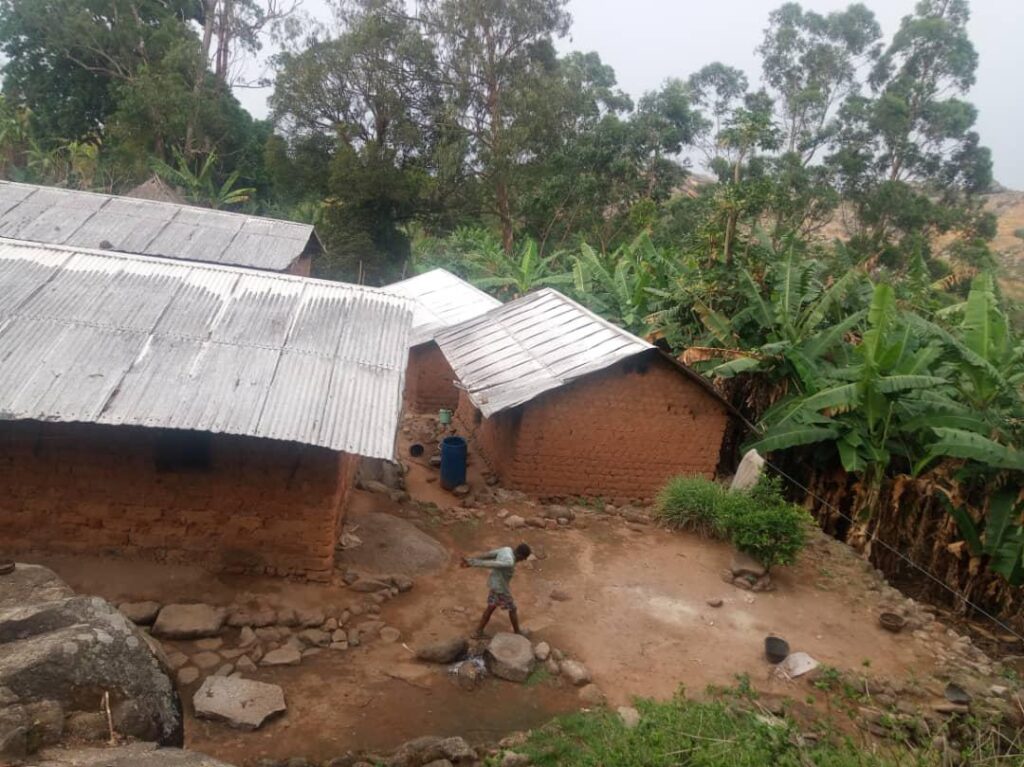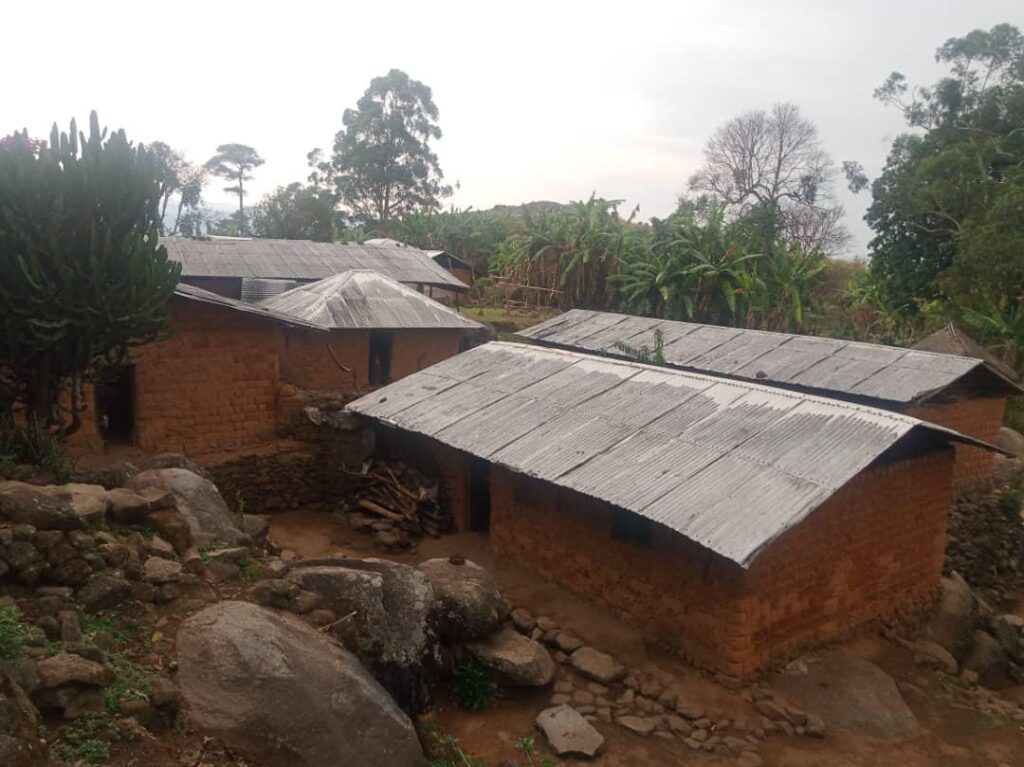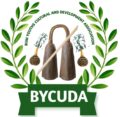Sawi Fondom

Brief History
The people of Sawi originally came from Oku, because of dispute over leadership, Mbukchu who failed to become a Fon had to leave the Oku palace. Rivers and fast running streams hinder their movements for this reason and to avoid them, they decided to follow the high land passage. They called this passage (Oula Fuyena). It was through this means that Mbukchu and his people managed to reach this present side sawi and established their chiefdom without conflict, as there were no habitants in the area. Before reaching Sawi, they were already hilltop dwellers, hence they all settled in and around the Sawi palace which is the highest point in Bum area. One of the reasons they must settle there was that they found a lot of caves which were use as dwelling places and for safety during wars. There was much wild live here which made the people to love hunting.
Hunting was difficult as there were no modern weapons. Primitive methods were used. Among them the lining of stones on hill tops to block the free movements of animals and trapping them. They called this method (Kukey Tama Mufie). Digging of large holes and filling them halfway with water in order to trap animals such as, Buffalos, Giraffes, Baboons, etc, was another method. This was called (Tima-a-Abea). The holes were often dug at a passage between two forests. Traces of this method could be seen, if not destroyed by much grazing on the hill tops or at indicated point. They could also be found in the Kimbi Reserve.
Tima-a-Abea has left behind the traditional science of reading the last quantity of wine poured from a calabash into a native cup. The reading and the result there fore is called (acuta Muluka).
When Mbukchu has finally settled, he went back to Oku on a peaceful visit. Oku people who thought that he had died were surprised to see him. He was given civil reception. Good relationship between them was strengthen as he was this time received as a leader of his own people. He was then named (Sawi) meaning disappeared and reappeared. His people became known as the Sawi people. The cordial relationship continued, Up till now in Oku. The section of the Oku palace in which Mbukchu was staying is still maintained and called Sawi Palace. Much more evidence of good relationship between Oku and Sawi is that the Sawi Fon is enthroned in the presence of Oku Fon and Vice versa. This is a real blood and brotherly relation. Inter traditional rights are constantly being performed in the two palaces.
Immediately the war period began, raiders, in search of cheap articles for the slave trade raided the area. They were from the Northern Region of Nigeria and the Sawi man called them (Mkoli). Many families namely Mungong, Mbuk, Saff etc were attacked and many people swept away. These facts were gotten from captives who returned from the Northern Nigeria, amongst them was pa Njikilang from Ngen who came and stayed in the Baptist mission in Songka with the granddaughter married to the catechist. The Northern raiders found it difficult to penetrate Sawi. The geographical location of the palace helped them to halt the mighty army which defeated every village in the area. Guards could sight as far as possible to identify their enemies. When enemies were approaching, they used the rocks as barricades. Horses could not run very swift while approaching the palace due to stiff and rocky hills. These natural advantages and the hard work of the people made Fon Wainmbenayah survived. Another factor which made him survive was that his people obeyed him and stayed together. When the people of Kom saw that Sawi survived from the hands of the raiders, they were surprised. The kom man nick named the Sawi man “ABUM” Idiom, which means weevils. Instead of attacking them, Kom decided to enter into a peaceful agreement with Sawi (Abum). Boundaries were set up, the piece of land that was for Sawi was called Ngunabum) meaning farms or bushes belonging to Abum. This resulted in a name of a village today called Ngunabum. The ceremony which followed the peaceful agreement was performed in the two palaces. The Fon of Kom send guards called Chindas with wine in a special calabash called Ngeah and with green leaf called Nkeng indicating peace. Thereafter, Sawi Abum signals back by sending chindas with wine in like manner to KOM. This agreement is called (Mukang). The peaceful agreement between Kom and Bum was performed in the palace of Kom and in the Palace of Sawi. Since then, there has been very cordial relationship between the two palaces. When the people of Kom found that there was much wealth in the palms belt of Fang and Koshin, they wanted to extend their Fondom there. Reaching Buabua which is the farm of Sawi (Abum), they retreated at a point called (Waifufesi).Nso influence was halted due to the relationship between Oku and Sawi (Abum). Sawi (Abum) is a brother to Oku, and Oku is very cordial with Nso and even having brotherly relation with part of Nso namely Mbiame. This reason alone has to stop the expanding Nso influence.
When all the peaceful agreement and cordial relations had been established, the Sawi (Abum) man started going about his business with confidence. People started reasoning for themselves. Control of land was introduced and hunting grounds were shared, amongst them was the Fon’s hunting ground called (Ghena Fonasawi) meaning Fon’s hunting bush extending from Subum to Sali, the reserve, and part of the range. (Ghena Fumbana), hunting ground belong to associations of hunters called Fumban. Ghena Netanga, hunting ground belong to association of hunters called Netang. Fon Ngambeh, seeing that peace had been restored, encouraged the people to be farmers. People started settling around fertiled area namely; Ngunabum, Buabua,Su-Bum, Sali, etc. Land was also allocated for the Fon’s farm. This land is between Buabua and Su-Bum called (Njick). Food gotten from these farm was taken to the palace by the elderly women belonging to a traditional set up in the palace called ( Fubain). Njanga has the piece of land extended from Nyos , Tounen through Josisi to Kuman gaas their own hunting and farming land,
Royalties were paid in kind to the royal family. Animals were classified thus, animal that could be skinned and those that could only be roasted. The skinned animal is called (Nyama gou) . It is forming this class of animals that the right hand of it was send to the [palace as royalties]. Tut or royalty food from wealthy women called Natum were for the maintenance of the palace.
When the people finally settled, communication between them became and the oku people was rare due to the hilly and rocky nature of the areas. Fon Bongayang who took the throne was then lord of lords of the area, insisted that as a sign of wishing to stay in the area should study and speaks Sawi Language or completely abandon their own language. This condition sparks out problems. Some very Sawi group who wanted leadership kicked against the idea. They then left the Sawi palace and settle in Chong nkang a piece of land between Buabua and Su –Bum. When they saw that Chong kang was very near the Sawi palace, they decide to wander right to Fungom clan area where land was gotten and there, they established the Fondom called Koshin. Another small group crosses over to Mmen and settled at a palace called Iseh. The Achain man, who is a nephew to Sawi man, decided and established his chiefdom in the Fondom of Kom. Many families accepted the condition, and some did not only study the language but completely abandoned their own language as it is the case with the last group which entered from Elung in Kom. Now that the language was being spoken by every family in the area, it eventually became the most popularly accepted language. The acceptance of the language changed the name from (Gesi) Sawi (Abum) to Gesi Bumy); meaning Bum language.
The coming of the white man brought drastic changes into the area. Infact it was the start of a gloomy period for a Sawi Abum man. The Germans were led by Bali guides. Reaching Sawi (Abum) area they called it (Bafubum) meaning in Bali Language the people of Abum. Since then the area was called Bafubum , as time went on Bafu was dropped and Bum became the name of the area. In order to collect information from the area, the Germans set up a central mailing system at a place called (cho-Nda-Nwaglo). This area has long been deserted. It is only now that the princesses of Fon Ngwieh I are resettling there, and it has a new name called (Yungachum). Fon Domaeneba who peacefully received the white man did blunder. He did not even commission a man of Sawi origin to be a middleman between him and the white man but had to choose the leader of the last groupthat entered the area from Elung to act on his behalf. This commissioner did not act for the interest of his Monarch, but for his own interest. Because of this, the sad effect on the Sawi man was, and is still grave. People who have previously been protected from being attacked during the tribal war by peaceful agreements and cordial relationship initiated and established by a Sawi man tend against him. He was humiliated and became subject of black mail. The impact was felt greatly, during Fon Ngwieh the first reign when he was taken in 1946 to Bamenda and detained for six months. Though humiliated, Fon Ngwieh’s reign did enjoy the development scheme of the white. It was during this reign that the motor roads pass through the village. Also, the first primary school in the village was built during this reign. People’s minds had been directed to development when Fon Mbanga took over the throne in 1966. They were engaged in opening their rice and coffee farms. The Fon himself was also engaged in the rice farming and he had to build a farm palace in Su-Bum where he ripped in 1986 during the Lake Nyos disaster. It was in his reign that the developed Health centre and the Council court was built in Su-Bum.
Traditional Institutions
The Fondom has many traditional institutions among which are the ;( Kwifon, Tut, Ifum,and the Fumbain) etc. During the later period of Fon Ngwieh I, Royalties flowing to the palace were in small quantities. The nobles were not frequently visiting the palace. The climax reached during Fon Mbanga’s reign. Hunting was prohibited and this decision taken by administration stopped the flowing of royalties to the palace. The palace was almost deserted since then it has not regained its firm and prestige.
Source: Fonfuka CDP, 2011.

